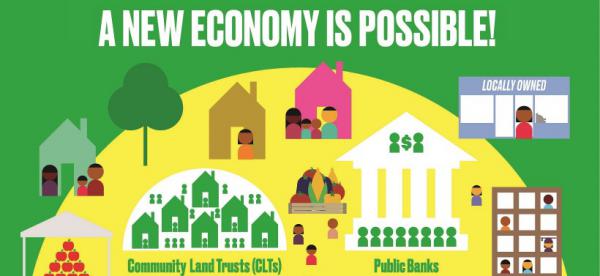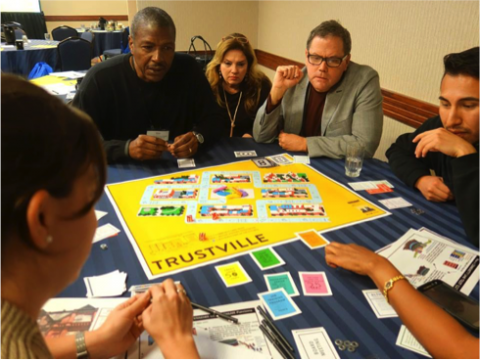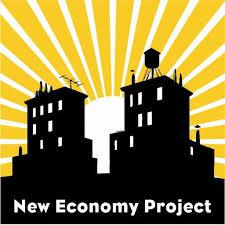
By New Economy Project
It’s no secret that we have an affordable housing crisis on our hands. Here in New York, with rents rising at exorbitant rates, more than half of New Yorkers are rent-burdened and 1/3 are severely rent burdened, according to city government. Homelessness has reached a record high, with over 60,000 New Yorkers on the streets or in shelters, and untold numbers living in precarious and overcrowded conditions. City efforts to address this crisis have fallen short of providing deep affordability to those who most urgently need it. As the limits of hard-won housing reform and regulation become increasingly apparent, communities are turning to creative solutions that can challenge the status quo: specifically, the deeply-entrenched notion that housing is a commodity rather than a human right, and the lack of community control over land.
We at New Economy Project believe that community land trusts (CLTs) address these underlying issues of housing insecurity. That is why we co-founded the New York City Community Land Initiative, which supports community land trusts and other community-led housing and neighborhood development. CLTs are non-profit organizations that separate ownership of the land from what’s built on top of it, and take land out of the speculative real estate market. Excited? Confused? Perhaps both? It’s easy to get bogged down in the technical details of a CLT, but the bottom line is that CLTs can transform neighborhoods by preserving and creating permanent and truly affordable housing, as well as commercial and community space. Perhaps most importantly, CLTs can be used as organizing vehicles for community control. We believe the CLT movement can only be successful when community residents are invested in, and at the forefront of the fight for, community land trusts.

That’s why our first order of business was to create popular education materials that engage community residents in conversations about CLTs, Mutual Housing Associations and other non-speculative land use models. Since NYCCLI’s inception in 2012, the alliance has created a variety of infographics, a video, a comic and a board game designed with and for local low-income residents. We made these materials because we don’t want New Yorkers to simply learn about a housing model they could benefit from; we want to inspire a paradigm shift that encourages neighborhood residents to see housing differently and to see themselves as decision-makers in their communities. Rather than ask residents to sit through a power point presentation or read through a brochure, our board game invites players to embrace the role of neighborhood steward. The comic encourages readers to think of themselves and their neighbors as community organizers, and the video gives the viewer the opportunity to hear from their fellow New Yorkers about the housing problems and the solutions they’ve identified. These tools invite concerned residents to become engaged protagonists and decision-makers in their communities from the get-go.
While there are countless ways these tools can help us build support and expand our alliance, they are not exclusively a means to an end. During the early stages of our organizing, we decided to create these materials in a highly collaborative way, which mirrors the type of participation and ownership that we see within community land trusts themselves. Alliance members that were interested in contributing to these projects, regardless of their previous experience, became storyboard and script writers. Month after month homeless activists, local residents, artists and advocates collaborated and developed new skills, while also strengthening relationships within the group. The completion of these popular education materials also yielded a much-needed step in any long-term organizing campaign – an early sense of accomplishment in a long struggle.
 New Economy Project is an economic justice advocacy organization based in New York City. New Economy Project’s mission is to build a new economy that works for all, based on principles of cooperation, democracy, equity, racial justice, and ecological sustainability.
New Economy Project is an economic justice advocacy organization based in New York City. New Economy Project’s mission is to build a new economy that works for all, based on principles of cooperation, democracy, equity, racial justice, and ecological sustainability.
Follow us: Twitter YouTube Facebook